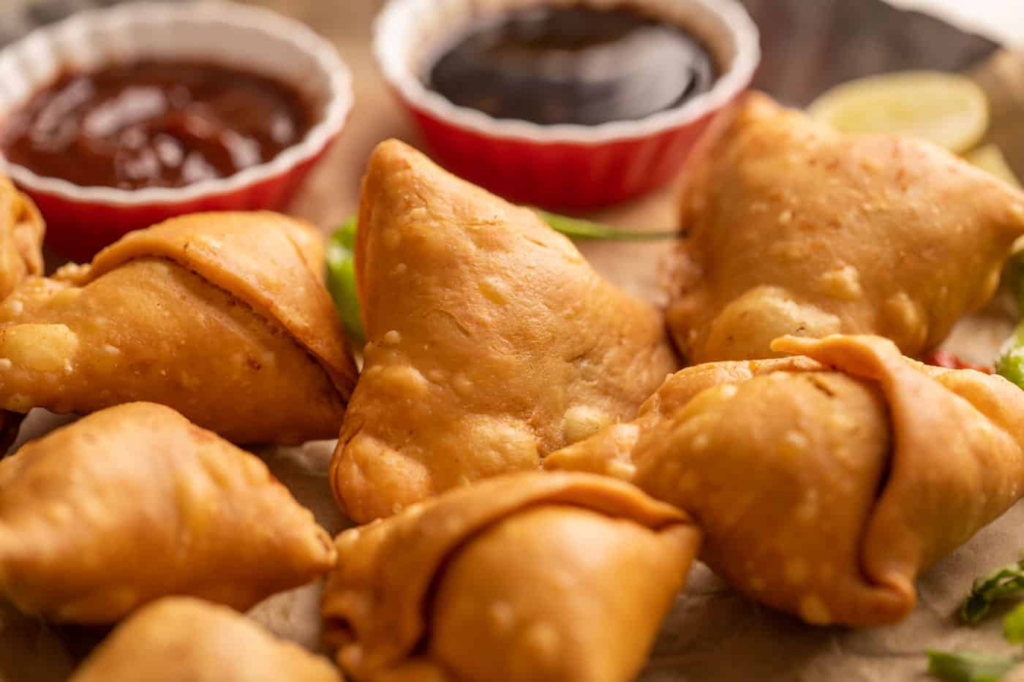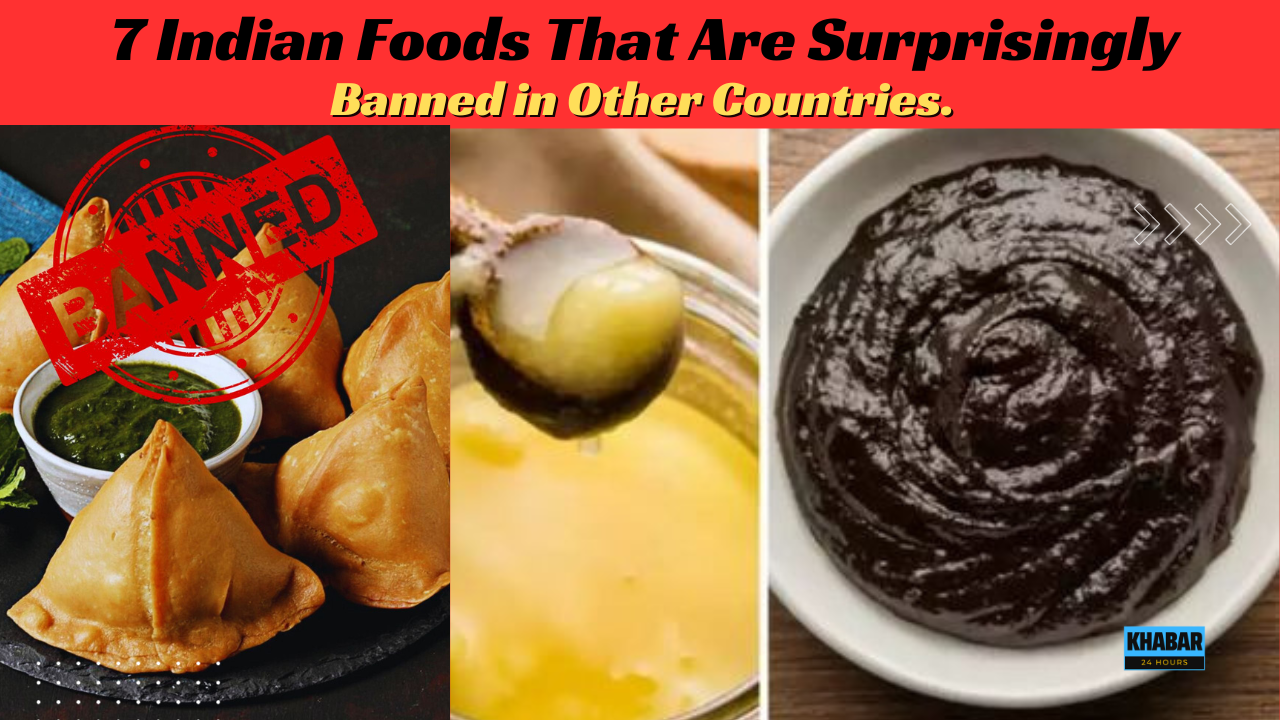India is a land of rich culinary traditions, with a diverse and flavorful cuisine that has tantalized taste buds around the world. However, there are some popular Indian dishes that have been met with raised eyebrows and even outright bans in certain countries. Let’s take a look at seven such foods, and explore the reasons behind their controversial status:
1. Samosa

The humble samosa, a crispy fried pastry filled with spiced potatoes and peas, is a beloved street food in India. But in Somalia, the triangular shape of the samosa is seen as a symbol of Christianity by the militant group al-Shabaab, and its sale and consumption are prohibited. This unusual ban highlights the complex interplay between food, culture, and religion.
2. Ghee

Ghee, a clarified butter commonly used in Indian cooking, is prized for its rich flavor and nutty aroma. However, it has also come under fire for its high saturated fat content. In the European Union, ghee is banned due to concerns about its potential negative impact on cardiovascular health. This highlights the ongoing debate about the health benefits and risks of traditional foods.
3. Chyawanprash

This Ayurvedic supplement, made with a blend of herbs, honey, and ghee, is believed to boost immunity and overall health. However, Chyawanprash has been banned in Canada and the European Union due to concerns about its high lead and mercury content. This highlights the importance of responsible sourcing and quality control when it comes to traditional remedies.
4. Kebabs

Kebabs, grilled skewers of marinated meat, are a popular dish across the Middle East and South Asia. However, certain types of kebabs made with specific meats or ingredients may be restricted in some countries. For example, beef kebabs are banned in Hindu-majority India due to religious considerations, while pork kebabs are prohibited in Muslim-majority countries. This highlights the role of religious beliefs in shaping food cultures.
5. Poppy Seeds

Poppy seeds, used in Indian sweets and curries, contain trace amounts of opiates. While generally considered safe in small quantities, some countries, like the United Arab Emirates and Singapore, have strict regulations or outright bans on poppy seeds due to concerns about potential drug use. This highlights the need for balancing safety concerns with cultural traditions.
6. Ketchup

While not the Indian variety specifically, some variations of ketchup have been banned in certain countries due to the use of artificial ingredients or preservatives not permitted by local regulations. This highlights the importance of checking food labels carefully when traveling abroad, as seemingly familiar foods may contain unexpected ingredients.
7. Jelly Cups

Certain brands of jelly cups have been banned in some countries due to the presence of additives like agar-agar, which may not comply with local food safety standards. This highlights the importance of ensuring that processed foods meet all necessary safety regulations before being exported to other countries.
It’s important to note that these bans are often specific to certain brands or ingredients, and not necessarily all variations of the food item. Additionally, regulations and policies can change over time, so it’s always best to check with local authorities if you’re unsure about the legality of a particular food item.
Conclusion
These seven examples highlight the fascinating and sometimes complex relationship between food, culture, and politics. They remind us that the foods we enjoy are not simply culinary creations, but also products of our cultural heritage and social context. So next time you bite into a samosa or savor a spoonful of ghee, take a moment to appreciate the rich tapestry of flavors and traditions that have come together to create this unique and delicious cuisine.
I hope this blog post has been informative and engaging. Please let me know if you have any questions or comments.

